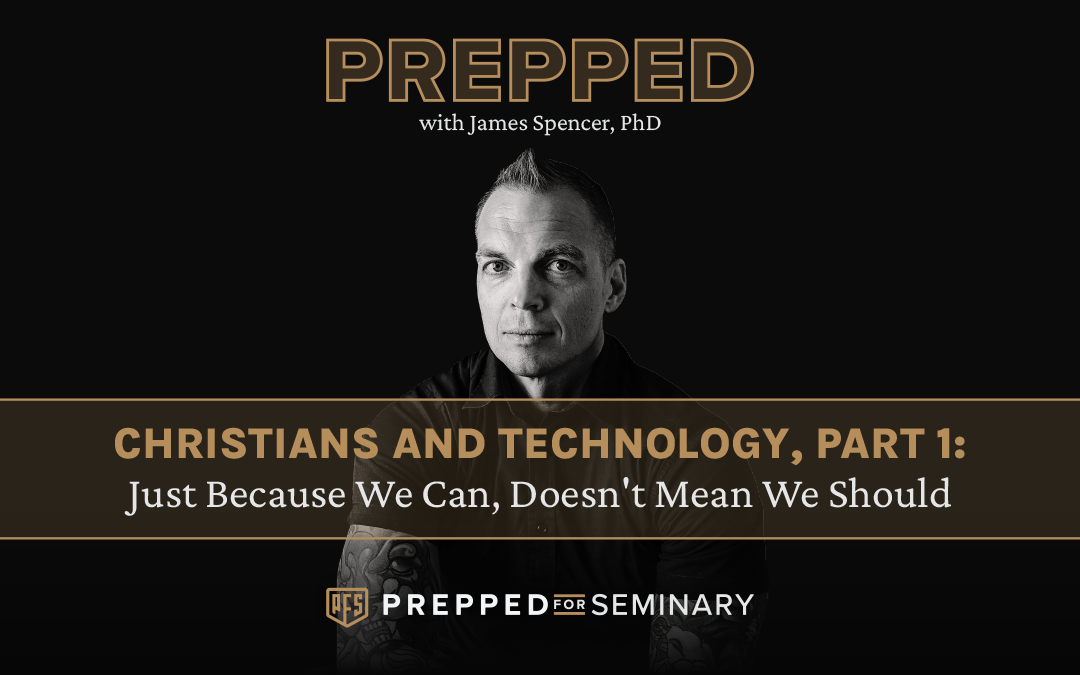Technology shapes nearly every part of modern life. From smartphones to artificial intelligence, we constantly engage with tools designed to make life easier. But as Christians, we must ask: Does technology draw us closer to God or pull us away?
The Bible doesn’t directly address today’s digital world, but through the Tower of Babel narrative (Genesis 11:1-9), we see the dangers of unchecked human capacity. Technology itself isn’t the problem—it’s how we use it. Are we stewarding it wisely, or is it leading us into self-reliance instead of dependence on God?
Let’s explore three key frameworks that can help us think biblically about technology and use it to glorify God rather than distract from Him.
1. The Power and Risk of Human Capacity
God created us in His image with creativity, problem-solving abilities, and innovation (Genesis 1:26-28). These are gifts! We are called to cultivate the earth and use our abilities to extend God’s glory.
But like the people of Babel, we risk using technology to serve ourselves rather than God.
Consider social media: It connects people across the world, but it also breeds envy, distraction, and misinformation. AI increases efficiency but raises ethical concerns about privacy and truth.
Key Question: Are we using technology to increase our dependence on God or make us feel like we don’t need Him?
2. Convenience vs. Meaningful Engagement
Albert Borgman, in his book Technology and the Character of Contemporary Life, makes a distinction between “things” and “devices.”
- “Things” require engagement and effort. A wood-burning fireplace requires chopping wood, building a fire, and maintaining it. This creates discipline and shared experiences.
- “Devices” prioritize convenience over engagement. A modern thermostat lets you adjust the temperature instantly—no effort required.
The Spiritual Impact
Technology often makes our faith “too easy.” Instead of deep Bible study, we settle for a verse of the day. Instead of prayerful reflection, we rely on quick devotionals. While these tools can be helpful, they shouldn’t replace authentic engagement with God.
Key Question: Are we prioritizing convenience over meaningful spiritual discipline?
3. How Technology Shapes Our Habits and Values
Marshall McLuhan’s Four Laws of Media gives us a framework to evaluate technology’s impact. Every technology:
- Enhances something (e.g., social media enhances communication).
- Makes something obsolete (e.g., texting replaces face-to-face conversations).
- Retrieves an older practice (e.g., podcasts bring back oral storytelling).
- Reverses into negative consequences when overused (e.g., social media leads to addiction and anxiety).
Applying this to Christian life, we must ask:
- Does AI-driven Bible study deepen our faith or make us passive consumers of Scripture?
- Does social media enhance our witness or create division and distraction?
- Are we more present in real-life relationships or more glued to our screens?
Key Question: Is the technology I use shaping me into someone who reflects Christ?
Discernment: The Key to Wise Technology Use
Technology is not inherently good or evil. But its effects are never neutral. It either moves us toward God or away from Him.
Biblical Discernment in Technology Use:
- Romans 12:2 – Do not conform to the world but be transformed by renewing your mind.
- 1 Corinthians 10:31 – Whatever you do, do it all for the glory of God.
- Colossians 3:2 – Set your mind on things above, not earthly things.
Practical Steps for Christians:
- Pause before adopting new technology. Ask: Will this help or hinder my walk with God?
- Use technology to cultivate faith. Apps, podcasts, and digital tools can be helpful—but should never replace deep engagement with Scripture and prayer.
- Be mindful of social media habits. If it fosters comparison, division, or addiction, reassess its role in your life.
- Prioritize real-life connections. Digital interactions cannot replace church, community, and face-to-face discipleship.
Reflection Questions
- How is technology shaping your relationship with God?
- What digital habits might be distracting you from meaningful faith engagement?
- Are there ways you can use technology more intentionally to glorify God?
Final Thought: God has given us the ability to create, innovate, and explore. But true flourishing happens when we use our human capacity to extend His glory—not replace Him. As Christians, let’s be intentional, thoughtful, and discerning as we navigate technology in our daily lives.
What’s one step you can take today to engage with technology in a way that honors God?
